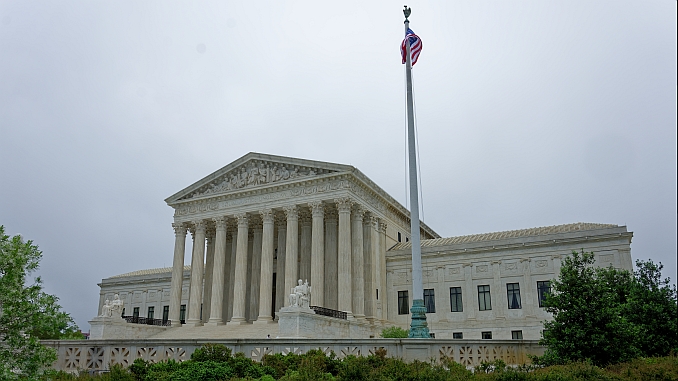
On June 29, 2020 the U.S. Supreme Court announced its decision in Seila Law v. CFPB,the Consumer Financial Protection Bureau. The case has been long awaited and asked two questions central to the constitutionality of the CFPB.
For those of us in business, the real estate industry, insurance and financial services at the time the Dodd/Frank bill became law, the agency’s independence with no oversight from any elected official and the agency director’s ability to unilaterally impose fines and punishments were, and still are, of great concern.
Some companies fighting the constitutionality of a single person having the power to be the investigator, judge, jury and decision maker of the accused guilt or innocence, were financially unable to pursue their claims all the way to the Supreme Court.
PHH was the first case to make its way through most of the judicial process seeking to establish that the CFPB Director position was unconstitutional since the agency is an Executive (President) level agency, but the law restricted the President’s ability to fire the director. The result being an agency director who was not supervised by the President or any other elected official and who could make decisions, without recourse for the accused, since the legal avenue under Dodd/Frank was agency administrative judgement. For some, this was garishly unconstitutional.
In the PHH case we saw how one Director could unilaterally decide to change the ruling of his own agency and increase fines several fold. Director Cordray personally increased the initial PHH CFPB fine from $6 million to $109 million.
The questions before the Supreme Court in Seila Law v. CFPB were:
1 – is the CFPB agency structure constitutional since its Director and actions are not subject to the President or other elected official’s review?
2 – If the Directorship and structure of the agency is unconstitutional, are the actions taken and regulatory provisions issued by the CFPB legal and able to be upheld?
The Court issued a two-part decision with two majorities: The Directorship is unconstitutional and the CFPB agency is legal. While that seems simple, it actually opens up a lot of questions.
The first question in the case revolves around the constitutionality of the Director being unaccountable to the President or any other elected official. Article II of the Constitution charges the President with faithfully executing the laws of the United States. The President hires assistants to help and has not only the hire ability, but the fire ability as part of managing the Executive branch. The Dodd/Frank Act chose to limit the conditions a President may fire a CFPB Director to cause only.
Since the Constitution provides for three branches of government with distinct roles, all answerable to the People from whom their power comes, then Congress cannot form a fourth unaccountable branch with a Director who is independent of election and unanswerable to the President. The principle that power comes from the People and is installed in elected officials so that the People may regularly, through the ballot box, inform the elected officials of their displeasure or concurrence is a bedrock principle.
When the Dodd/Frank Act came into being, it created an agency Director who was independent and unaccountable to anyone. And so, the Supreme Court struck down this provision of the law.
The outcome may have been different if Congress had created a CFPB similar to other federal agencies such as the FCC, SEC and FTC, all of whom have multi member boards with members nominated by the President and confirmed by the Senate. Those members, who can be removed for cause, are subject to periodic Presidential re-appointment. As the decision noted, there is one currently recognized limitation of Presidential authority to fire agency members, that limitation is based on the Humphrey’s Executor v. United States case. The second case sighted by the majority is Myers v. United States.
I suggest you read Justice Thomas’ dissent to understand more about the impact of these two cases on our constitution and our government structure. With the decision in Free Enterprise Fund v. Public Accounting Oversight and in Seila V. CFPB, questions are being raised about the legality of the FCC, FTC, SEC and other government boards. On July 9th the Supreme Court announced it will take the Collins v. Mnuchin case which questions the constitutionality of the FHFA, an agency structure similar to the CFPB.
The second part of Seila v CFPB answers the question if the directorship structure is unconstitutional, is the agency still able to exist?
The majority found that Congress’ intent was to have a Consumer Financial Protection Bureau even if one or more parts of the law were found unconstitutional. Because of this, the court remanded to the Court of Appeals the question of whether the civil investigative portion is valid since it was ratified under a now unconstitutional director.
This calls into question all the regulatory rules and actions taken by the CFPB since they were taken by unconstitutional directors. Watch the 9th Circuit Court of Appeals going forward.
Last year the National Association of REALTORS® submitted their amicus brief arguing the director construct of the CFPB is unconstitutional, but the court should apply the severability clause and uphold the agency.
